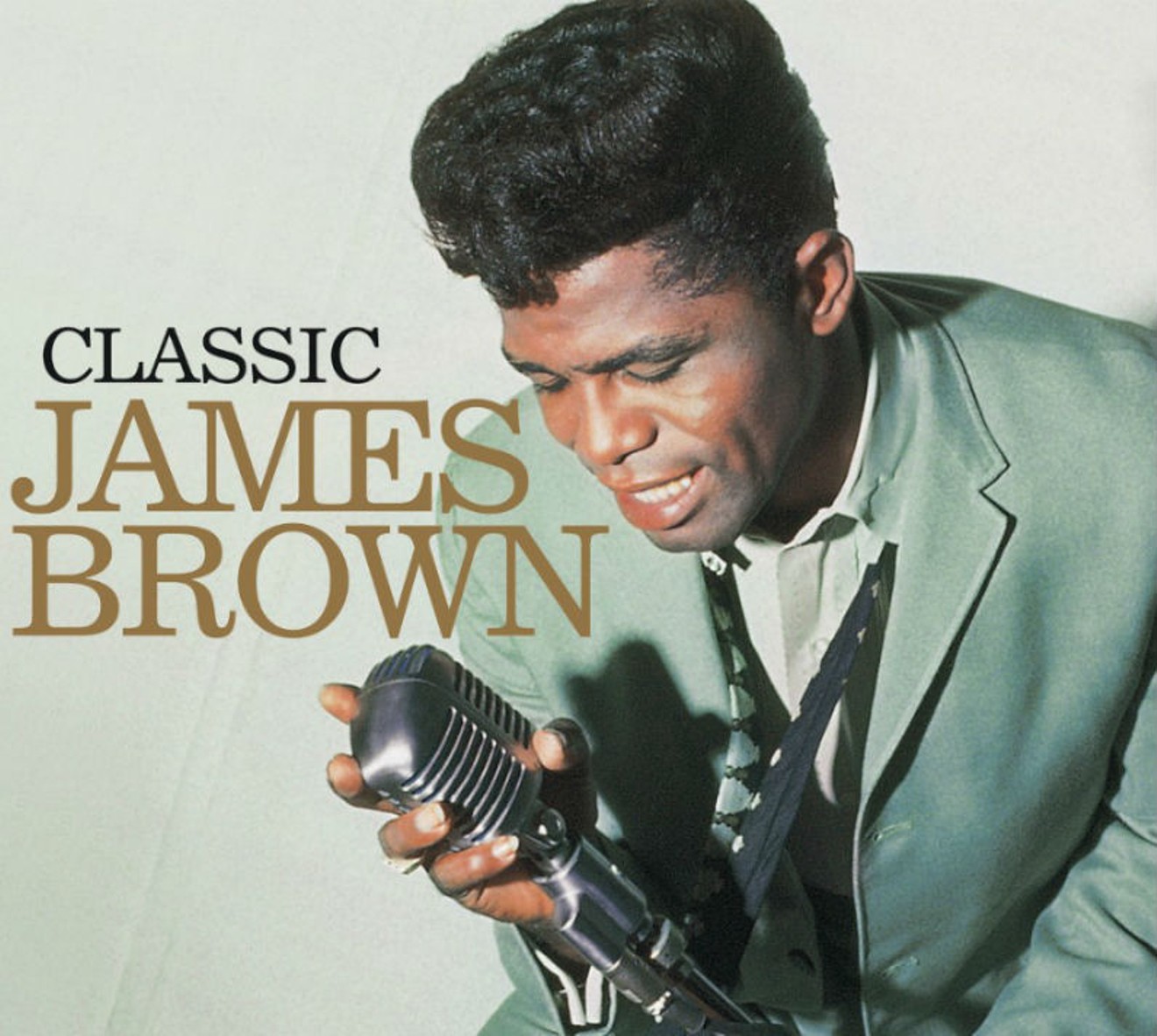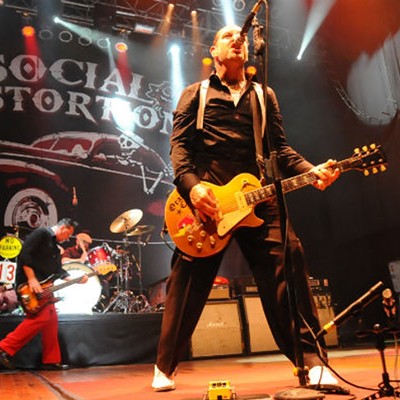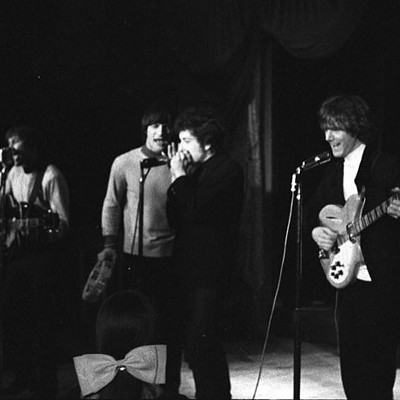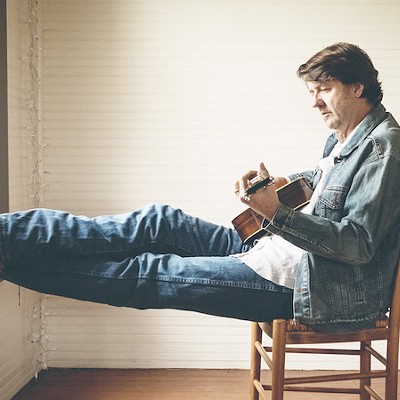Support Us
Houston's independent source of
local news and culture
account
- Welcome,
Insider - Login
- My Account
- My Newsletters
- Contribute
- Contact Us
- Sign out

Who had the greater impact on music: James Brown or Prince? James Brown!
Album cover
[
{
"name": "Related Stories / Support Us Combo",
"component": "11591218",
"insertPoint": "4",
"requiredCountToDisplay": "4"
},{
"name": "Air - Billboard - Inline Content",
"component": "11591214",
"insertPoint": "2/3",
"requiredCountToDisplay": "7"
},{
"name": "R1 - Beta - Mobile Only",
"component": "12287027",
"insertPoint": "8",
"requiredCountToDisplay": "8"
},{
"name": "Air - MediumRectangle - Inline Content - Mobile Display Size 2",
"component": "11591215",
"insertPoint": "12",
"requiredCountToDisplay": "12"
},{
"name": "Air - MediumRectangle - Inline Content - Mobile Display Size 2",
"component": "11591215",
"insertPoint": "4th",
"startingPoint": "16",
"requiredCountToDisplay": "12"
}
,{
"name": "RevContent - In Article",
"component": "12527128",
"insertPoint": "3/5",
"requiredCountToDisplay": "5"
}
]
My brother Adrian and I recently debated a simple, unanswerable question: who was greater, James Brown or Prince? We agree that arguing who is “greater” – more influential, more charismatic, more musical, more everything – between James Brown and Prince is like bickering about whether Jordan or LeBron is the greatest. Different eras, different feats, but undisputed greatness. No one can argue that JB and Prince (or MJ and LeBron, for that matter) aren’t among the best ever at their respective endeavors.
Life would be far less interesting if we didn’t sometimes indulge ourselves such questions. We each refuse to concede the debate, so we thought we’d bring the question to you, music fan. Tomorrow, Adrian makes a case for His Royal Badness; but today, let me tell you why James Brown was not and never will be “Soul Brother Number Two,” no matter how many JB protegees (P.R. Nelson included) follow. These are the top 5 reasons James Brown was and always will be Soul Brother Number One:
HARDEST WORKING MAN IN SHOW BUSINESS
Only a fool would disparage Prince’s legendary work ethic. The man was a machine. He recorded music like we wipe sleep from our eyes – daily, quickly, adeptly and in the darkness where no one can see what you’re doing. But Prince had some advantages to getting started on a prolific, acclaimed career that JB never had. The Purple One was a suburbanite who grew up in a household with a fellow musician (you have seen Purple Rain, right???). By contrast, JB grew up parentless. His mother just up and left and his father sent James to live with his aunt, who ran a brothel. Even in a bordello, James had to earn his keep, so he picked cotton, shined shoes and danced for troops stationed at a nearby military base, sometimes just for pennies. JB once said he didn’t have a pair of store-bought underwear until he was nine years old. Prince probably had at least one guitar when he was nine. James Brown didn’t even have a pair of damn drawers, y’all.
All that work at a young age proved useful to JB as a musician. As the “hardest working man in show business,” he was known to command excellence from his band, sometimes to their chagrin, in endless rehearsals. He toured tirelessly, sometimes playing multiple shows a night. And those shows were dynamic. It was said he’d lose between three and seven pounds every show.
SUPER BAD
James Brown wrote the most empowering song the world has ever known. It’s called “Super Bad.” You can dial it up on Spotify right now and sing along. Doesn’t matter whether you’re a man, woman, black, white, free, incarcerated, graceful, clumsy – you can do it and feel instantly emboldened. It’s a song to remind us all – haters be damned – we’ve each got the potential to be a brilliant, beautiful human being.
In parts of the song, JB sings the following lines: “I love to do my thing and I don’t need nobody else;” “I got soul and I’m super bad;” and, best of all, “I jump back – I wanna kiss myself!” Have you ever felt so good about yourself you wanted to give yourself a big ol' smooch? It’s a great feeling and one that James Brown helped a lot of black Americans feel in an era when their worth was constantly belittled. His impact on the culture of the 1950s, ‘60s and ‘70s cannot be underestimated.
Dr. Martin Luther King, Jr. was assassinated April 4, 1968. James Brown had a show scheduled April 5 in Boston. The city had already experienced violent reactions the night of the assassination and feared more the next night. City officials wanted Brown to cancel his show, fearing it would stoke more unrest. Then, they asked JB to play the concert and televise it, so the show would keep people fixed to their TV sets and from burning down the town. JB agreed to do it (for a hefty sum – he was a shrewd businessman, too) and the show helped keep Boston relatively peaceful that night.
My favorite James Brown song might be “Get Up Offa That Thing” because they used it in that Harriet the Spy movie and my daughter, a musician born 40 years after JB’s career began, thought it was one of the most amazing dance songs she’d ever heard. But it could also be “Super Bad.” It’s hard to choose from over 800 he wrote for 63 studio albums – don’t talk to me about how much more prolific Prince was than JB. But I do know this: “Super Bad” is still an anthem for the marginalized and a Red Bull-like boost to the ego.
PAPA’S GOT A BRAND NEW BAG
James Brown was a hitmaker because he changed with the times over a very long, successful career. In the 1950s, he pompadoured and doo-wopped his way into the hearts of teenaged America with pleading hits like “Please, Please, Please” and “Try Me.” In the 1960s, he matured and wrote progressive songs like “It’s a Man’s Man’s Man’s World” and “Say It Loud (I’m Black and I’m Proud).”
Of any contribution any artist could make to music, few compare to creating a new genre. James Brown and his band created funk music. This isn’t an exaggeration. Google “Who created funk music?” and see what the answer is. Go ahead. I’ll wait.
Songs like “Out of Sight” and “Cold Sweat” were something wholly unheard of in popular music. JB’s “new bag” was the commitment to the rhythms of the songs, finding a groove and turning every instrument in the band – horns, guitars, his own one-of-a-kind voice – into a drum beat. JB called out stops – “On the one,..” “Two times!” “On the good foot!” – and the band hit the mark every time. Had he not taken music in this direction, we still probably, maybe, eventually would have had funk masters like Parliament-Funkadelic and Sly and the Family Stone come along. It surely would have been a longer wait without JB showing them the way.
LIVE AT THE APOLLO
James Brown’s legacy as a live performer is practically untouchable. From his legendary T.A.M.I. Show appearance to the show-closing antics he performed nightly – falling to his knees to be draped in a flowing cape, a schtick he never quit and one that never wore thin – he personified electricity. Across genres, no one has proven as thrilling as he in concert. This isn’t conjecture or the biased opinion of an old fart; there’s scientific proof. In 2012, Rolling Stone magazine released its list of the 500 greatest albums ever, chosen by music historians and journalists. James Brown cracked the top 25, not with a studio album, but 1962’s Live at the Apollo. As it’s the highest-ranking live album on Rolling Stone’s comprehensive list, it is, by virtue, the greatest live show ever recorded. Consider the feat: a live album ranking that high, over millions of recordings made painstakingly and meticulously in studios with engineers and producers and the best technology available at their fingertips. James Brown live was better than practically any of that.
Consider this too: the album is just an audio representation of what a James Brown show was like. You can’t see the show, but you can imagine it: JB, dressed to the nines, hair did up right, working up an unrelenting sweat, dropping into the splits, forcing himself up like a manic, string-less yo-yo then falling to his knees again, his face contorted with beseeching heartache for this song and a wide, “I Feel Good” grin for that one. He moved like the love child of the garden’s most graceful butterfly and savviest hummingbird: lithe, lighting quick, visually stunning. He was among the greatest showmen of his era, which lasted for the better part of two decades.
GODFATHER OF SOUL
James Brown is the possessor of the most badass music nicknames of all time. He was “Soul Brother Number One;” he was “The Boss;” his explosive performances garnered him the moniker “Mr. Dynamite.” Prince, by contrast, was the Purple Yoda (or, you know,… “Symbol”). He’s Prince. His name evokes a small, French extraterrestrial. How does that compare to The Godfather of Soul? James Brown was the Don Corleone of music. When he made us an offer, we couldn’t refuse.
KEEP THE HOUSTON PRESS FREE...
Since we started the Houston Press, it has been defined as the free, independent voice of Houston, and we'd like to keep it that way. With local media under siege, it's more important than ever for us to rally support behind funding our local journalism. You can help by participating in our "I Support" program, allowing us to keep offering readers access to our incisive coverage of local news, food and culture with no paywalls.
Jesse’s been writing for the Houston Press since 2013. His work has appeared elsewhere, notably on the desk of the English teacher of his high school girlfriend, Tish. The teacher recognized Jesse’s writing and gave Tish a failing grade for the essay. Tish and Jesse celebrated their 33rd anniversary as a couple in October.
Contact:
Jesse Sendejas Jr.
Trending Music
- Wang Chung Headline a Musical Time Trip to the '80s...and Land on the Moon!
- Country Rock Thrives with Gene Clark and Flying Burrito Brothers for Record Store Day
- Top 10 Musical Guests On TV's Martin
-
Sponsored Content From: [%sponsoredBy%]
[%title%]

Don't Miss Out
SIGN UP for the latest
Music
news, free stuff and more!
Become a member to support the independent voice of Houston
and help keep the future of the Houston Press FREE
Use of this website constitutes acceptance of our
terms of use,
our cookies policy, and our
privacy policy
The Houston Press may earn a portion of sales from products & services purchased through links on our site from our
affiliate partners.
©2024
Houston Press, LP. All rights reserved.







